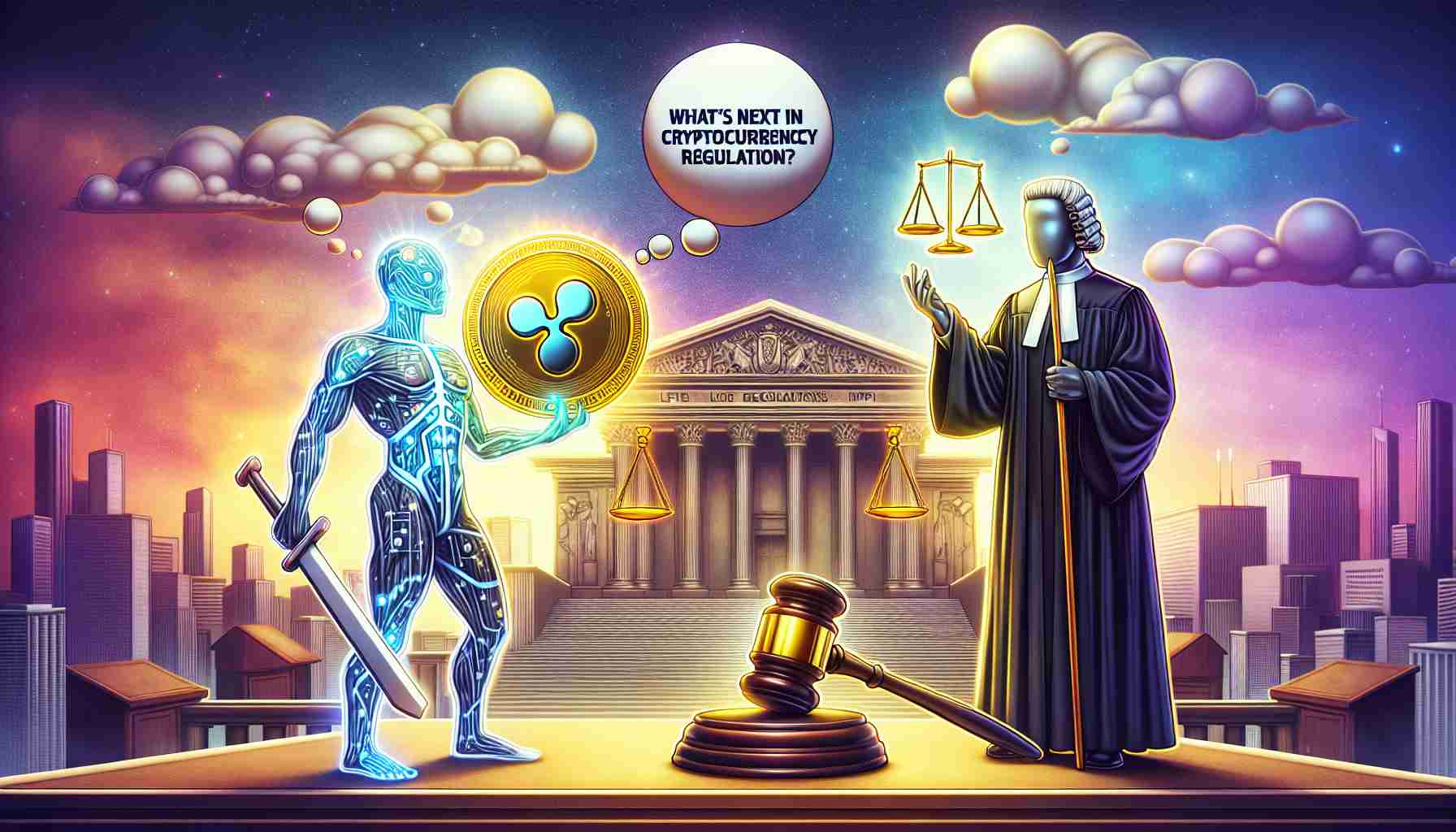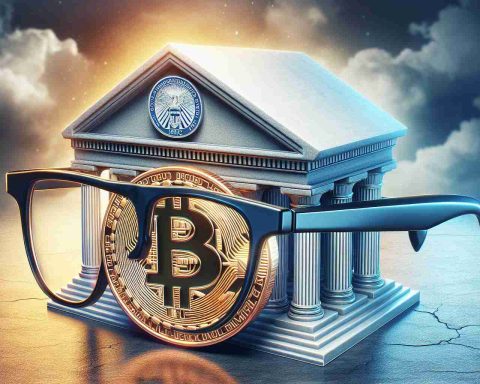The ongoing legal battle between Ripple and the U.S. Securities and Exchange Commission (SEC) is altering the landscape of cryptocurrency regulations, threatening to set a precedent that could influence future fintech innovations. In a world increasingly leaning towards digital currencies, the ramifications of this case could extend far beyond Ripple itself.
The SEC first filed its lawsuit against Ripple Labs in December 2020, claiming that its sale of XRP constituted an unregistered securities offering. Ripple has staunchly contested these allegations, arguing that XRP should be classified as a virtual currency, not a security. As the case unfolds, it has caught the attention of numerous crypto and finance enthusiasts, shedding light on the unclear lines between securities and digital assets.
One of the new issues arising from this case is the broader discussion on how emerging digital currencies should be classified and regulated. A pivotal part of the conversation is understanding the vital distinction between tokens that perform as utilities and those that act more like investment contracts.
The verdict could significantly impact how start-ups, investors, and other stakeholders approach initial coin offerings (ICOs) and cryptocurrency launches in the future. This case highlights the urgency for clear regulatory frameworks and international standards that can balance innovation with investor protection. As the digital economy grows, so too does the importance of these legal discourses in shaping the future of financial technologies.
The Ripple vs. SEC Legal Saga: Shaping the Future of Digital Currency Regulations
The ongoing legal tussle between Ripple Labs and the U.S. Securities and Exchange Commission (SEC) has opened a crucial chapter in the conversation surrounding cryptocurrency regulation, with implications reaching into environmental, societal, and economic realms. As digital currencies gain traction globally, the outcome of this high-profile case could determine the regulatory approaches towards cryptocurrencies and influence the future innovation tide in fintech.
Environmental Impact
Cryptocurrencies, like those involved in the Ripple case, have an indirect relationship with environmental concerns. Although XRP, the currency at the center of the SEC lawsuit, is known for its lower energy consumption relative to other cryptocurrencies such as Bitcoin, the legal battles and subsequent regulatory shaping could lead to shifts in which digital currencies are developed and adopted. If the verdict favors clearer regulations encouraging low-energy consumption digital assets, it could positively impact environmental sustainability efforts. By promoting eco-friendly tokens, the ruling may push the industry toward greener practices, aligning with global efforts to mitigate climate change.
Impact on Humanity
From a societal perspective, the case emphasizes the evolving role of digital assets, potentially serving as a gateway for broader financial inclusion. With regulatory clarity, cryptocurrencies could offer underserved populations access to financial services and digital economies otherwise limited by traditional banking infrastructure. By affirming the legal status of tokens like XRP, the case could pave the way for innovations that bridge the digital divide and empower individuals worldwide through financial autonomy and accessibility.
Economic Implications
Economically, the outcome of the Ripple case could set a precedent on how cryptocurrencies are perceived as assets, affecting investor behavior and market stability. Clear regulations could reduce uncertainties, thus stimulating investments and encouraging start-ups to explore innovative financial solutions without fearing unforeseen legal repercussions. Conversely, a harsh regulatory stance could stifle creativity and deter potential investors wary of entanglement in legal ambiguities.
A Glimpse into the Future
The implications of this legal battle for humanity’s future are profound. As the digital economy becomes more entrenched in everyday life, regulatory frameworks established today will guide the next wave of technological progress. Balancing innovation with consumer protection is crucial to fostering a system where digital currencies can thrive responsibly. This case acts as a bellwether for policymakers and industry players, highlighting the need for collaboration in crafting regulations that uphold this balance.
By influencing how digital currencies are ultimately governed and perceived, the Ripple vs. SEC case will likely steer the course of the fintech landscape, shaping how forthcoming generations engage with digital finance. Whether as a cautionary tale or a guiding framework, the outcome of this legal drama will undeniably leave its mark on the world’s economic and technological narrative.
The Ripple vs. SEC Showdown: What This Means for the Future of Cryptocurrency
Broader Implications of the Ripple Case
The legal confrontation between Ripple and the U.S. Securities and Exchange Commission (SEC) has become a pivotal moment in the world of cryptocurrency, exerting a wide influence on how digital assets might be regulated in the future. This high-stakes battle is not just about Ripple and its XRP token; it could shape the entire landscape of fintech innovations.
Emerging Trends in Cryptocurrency Regulation
In the wake of the Ripple case, a significant trend is emerging: regulatory bodies worldwide are taking a closer look at how digital currencies are classified. The distinction between utility tokens and securities is becoming more pertinent, as regulatory bodies need to define what exactly constitutes a security in the realm of digital currencies. This has implications for everything from initial coin offerings (ICOs) to the trading and taxation of cryptocurrencies.
Innovations and Legal Frameworks
The case underscores the urgent need for innovative regulatory frameworks that foster fintech growth while ensuring investor protections. There is a global push for international standards that provide clarity and consistency across different jurisdictions. Such frameworks are essential to mitigate risks, prevent fraud, and encourage legitimate investments in the growing digital economy.
Ripple’s Defense: A Double-Edged Sword
Ripple’s defense hinges on positioning XRP as a virtual currency rather than a security. This argument is pivotal, as its outcome could set a legal precedent influencing how regulators treat similar cases in the future. If Ripple succeeds, it could bolster the view that not all digital tokens should fall under securities laws, potentially leading to a relaxation of regulatory scrutiny for some fintech projects.
What to Expect Next
As the digital economy accelerates, expect the Ripple case to set significant legal precedents. The outcome could influence not only existing cryptocurrencies but also future fintech innovations, impacting how they are launched, marketed, and sold. This case might drive greater collaboration between regulatory bodies, financial institutions, and tech companies to establish a unified approach to digital assets.
Final Thoughts
The Ripple vs. SEC litigation is more than just a courtroom battle—it’s a defining moment for the cryptocurrency industry. All eyes are on the verdict, which will either tighten the regulatory noose around emerging technologies or pave the way for greater innovation in digital finance. With the world increasingly leaning towards digital currencies, this case will likely have lasting effects far beyond its participants.
For more insights into cryptocurrency regulations and trends, visit the U.S. Securities and Exchange Commission website.











